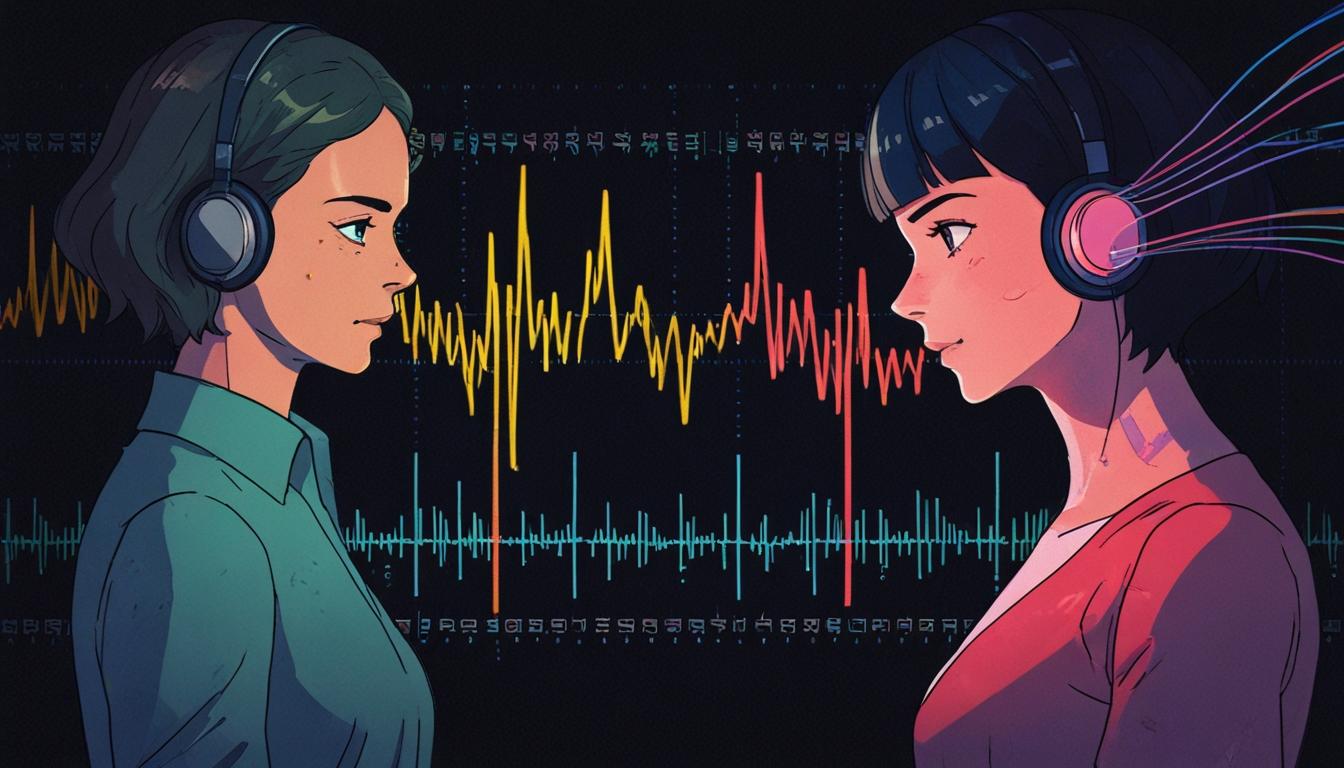Audible's recent announcement regarding its plans to integrate artificial intelligence into audiobook production has generated considerable attention and debate within the literary and audio communities. The Amazon-owned platform intends to make this innovative AI technology available to select publishers through what it describes as “two options”: an “Audible-managed” production where the company oversees the process, or a “self-service” model that empowers publishers to create audiobooks using Audible’s AI tools.
The technology allows users to choose from over 100 AI-generated voices in multiple languages, including English, Spanish, French, and Italian. Bob Carrigan, Audible’s chief executive, expressed optimism about this initiative, stating, “We are bringing new audiobooks to life through our own fully integrated, end-to-end AI production technology.” He emphasised Audible’s ambition to broaden the availability of audiobooks globally, asserting that AI could help creators connect with new audiences while making previously inaccessible stories available to listeners worldwide.
However, this bold move has not gone unchallenged. Voices from within the industry, including authors and professional narrators, have expressed deep concern regarding the potential implications of AI in audiobook narration. Joanne Harris, the acclaimed author of "Chocolat," described the initiative as a “shortsighted scheme” that risks diminishing the art of storytelling to a mere computational output. She highlighted the profound emotional nuances that human narrators bring to the table, emphasising, “In an age of declining literacy, I can’t think of anything more likely to put people off listening to audiobooks altogether.”
The sentiment resonated with Kristin Atherton, a seasoned narrator with over 400 titles to her credit. Atherton underscored that the distinguishing features of a compelling audiobook lie in the emotional intonations and timing that only human narrators can provide. The nuances of voice—subtle cracks denoting emotion, timing that elicits laughter—are aspects Atherton believes AI cannot adequately replicate.
Adding to the chorus of criticism, translator Nichola Smalley cautioned that while Audible’s AI offerings may entice more submissions, the result often leads to a saturation of “mediocre results.” She remarked on the distinct nature of human creativity, which brings a unique flavour that generative AI is unlikely to match, as it often produces content that settles at the lowest common denominator.
Prominent translator Frank Wynne was more direct in his condemnation, asserting that companies resorting to AI-driven solutions do so not out of superiority but simply due to cost considerations. “No one pretends to use AI for translation, audiobooks, or even writing books because they are better; the only excuse is that they are cheaper,” he noted, urging a critical examination of the implications such changes have on creative industries.
Conversely, pockets of optimism exist within this conversation. Audible’s newer beta initiative allows existing audiobook narrators to create AI-generated voice clones of themselves, enabling control over pronunciation and pacing to enhance the narrative experience. This initiative, although still limited in scope, aims to expedite audiobook production, harnessing technology to fill significant gaps in content availability while ensuring narrators remain integral to the process.
Moreover, the growing number of AI-generated audiobooks—over 60,000 new titles since the introduction of self-publishing tools—has opened avenues for independent authors. These writers have found a pathway to share their narratives without facing the prohibitive costs typically associated with professional voiceovers. While AI presents opportunities for more widespread dissemination of literature, many continue to voice concerns over the erosion of quality and authenticity that may come with prioritising efficiency over artistry.
In light of these divergent perspectives, the literary community stands at a crossroads. Anna Ganley, chief executive of the Society of Authors, pointed out that while the innovation could foster greater accessibility, it is imperative that authors are included in the conversation about how their work is represented. Ganley advocated for transparency, insisting that authors maintain the choice of whether their stories are narrated by human voices or synthetic alternatives, with clear labelling provided for consumers.
As Audible pushes ahead into an AI-driven future, the ongoing dialogue surrounding the ramifications of this technology will undoubtedly shape the landscape of audiobook narration. Whether the balance can be struck between innovation and authenticity remains to be seen, but the concerns expressed by creative professionals reveal a profound commitment to preserving the integrity of storytelling.
Reference Map
- Paragraph 1, 3, 5, 8
- Paragraph 2, 4
- Paragraph 6, 7
- Paragraph 2, 6
- Paragraph 3, 8
- Paragraph 4, 8
Source: Noah Wire Services
